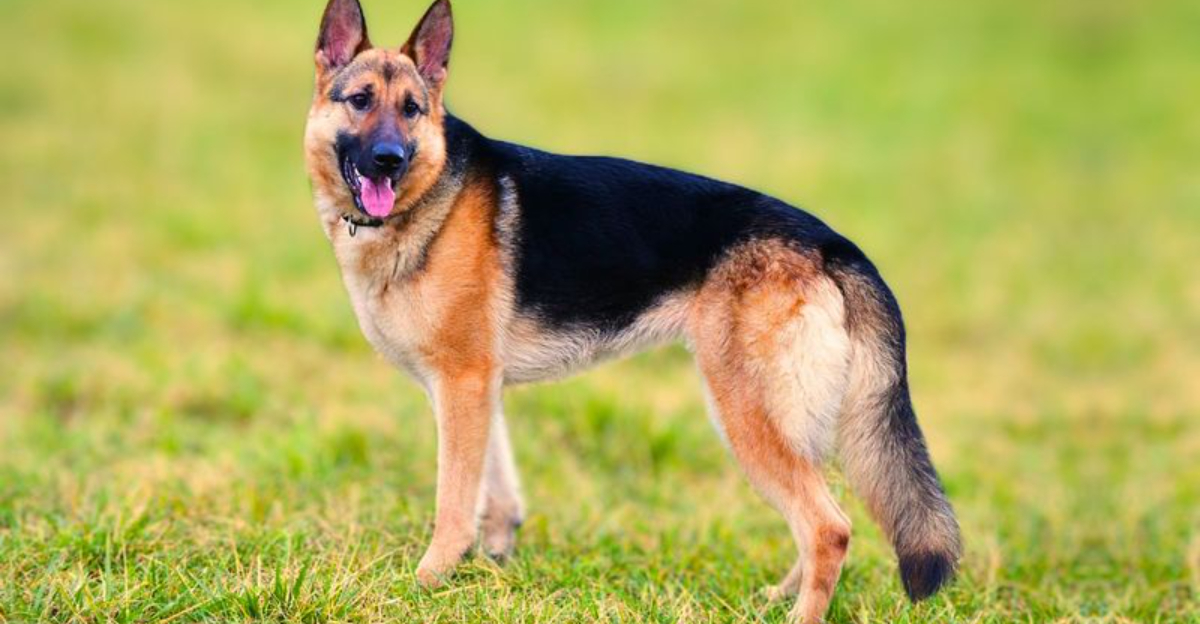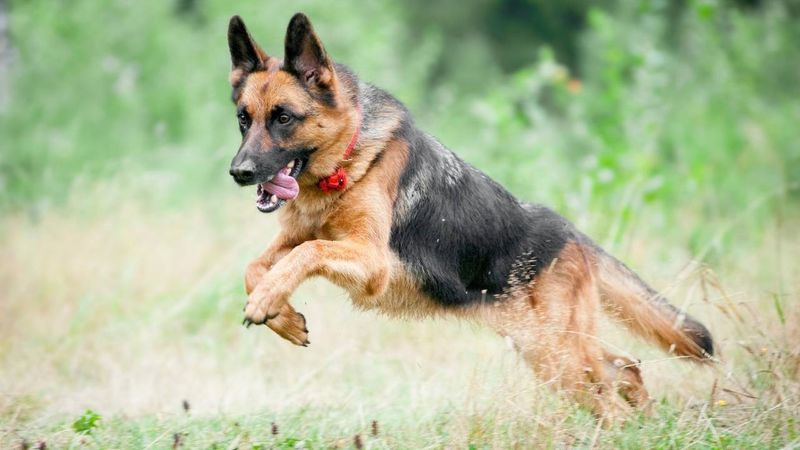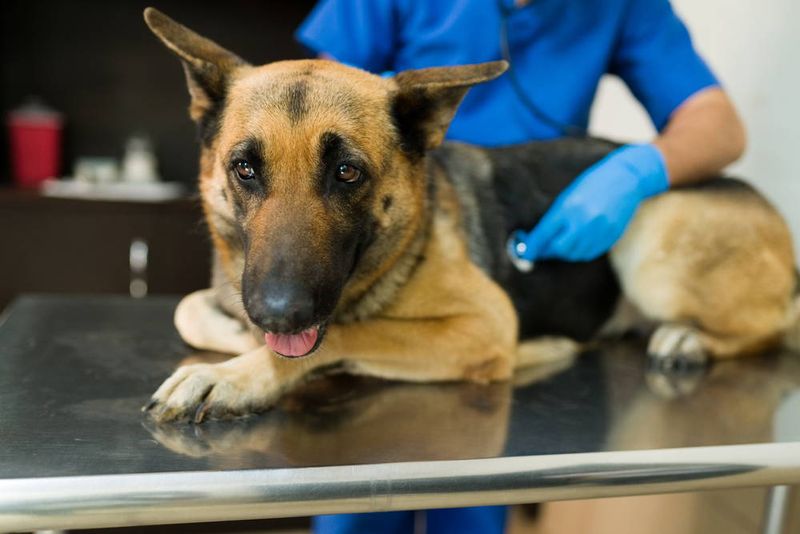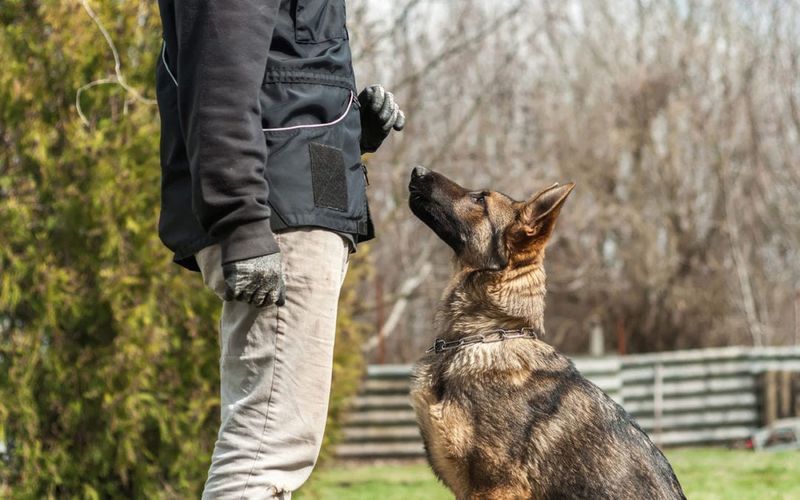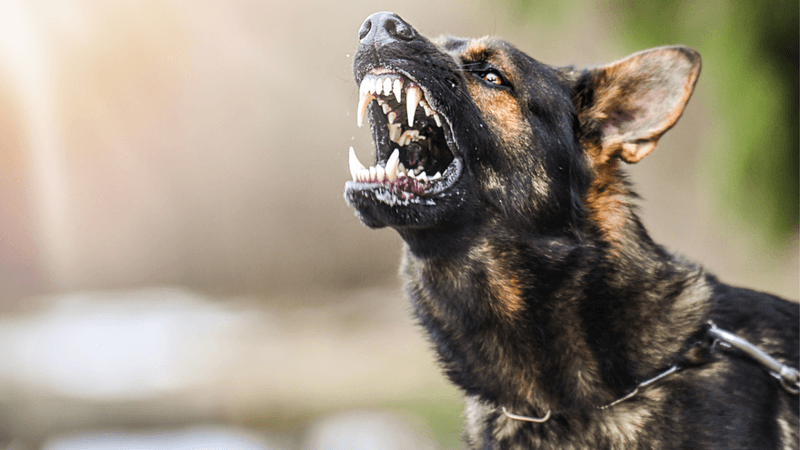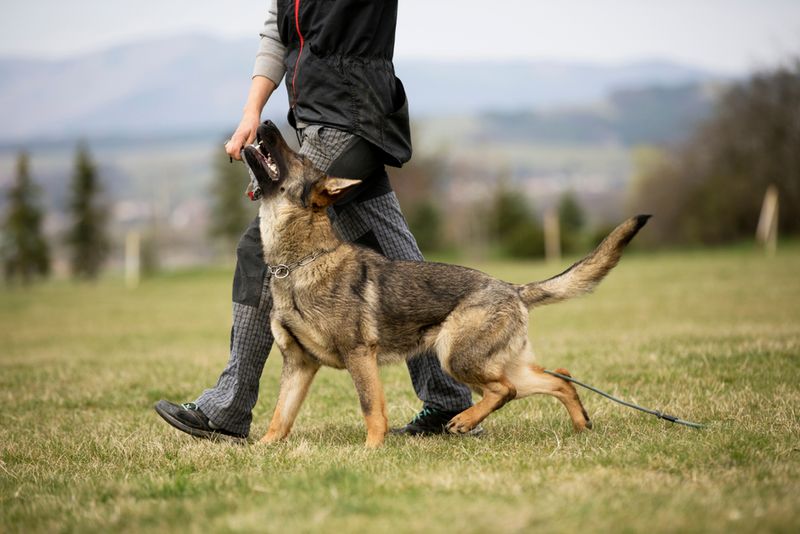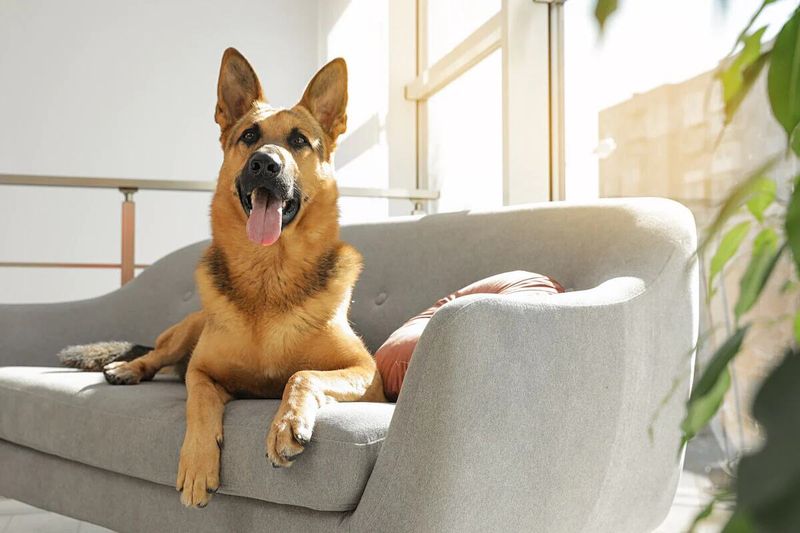German Shepherds are undoubtedly one of the most recognized and admired dog breeds around the world. Known for their intelligence, loyalty, and versatility, they are often seen in police and military roles, as well as cherished family pets. However, owning a German Shepherd isn’t for everyone. Before deciding to bring this breed into your home, it’s crucial to understand the challenges that come with them. Here are 14 compelling reasons why a German Shepherd might not be the right choice for you.
High Energy Levels
German Shepherds have an incredible amount of energy that needs to be channeled through daily exercise. If you’re not an active person or don’t have the time to commit to regular walks, runs, or playtime, this breed may become restless. Their high energy can lead to destructive behavior if not managed properly.
Imagine a dog with the enthusiasm of a marathon runner trapped in an apartment—it’s a scenario that can lead to chewed furniture and frustrated owners. Therefore, consider your lifestyle and energy levels before bringing home this dynamic breed. They thrive in active households.
Shedding and Grooming Needs
If you’re a fan of pristine, hair-free furniture, a German Shepherd might test your tolerance for pet hair. They are notorious shedders, especially during spring and fall when they blow their coat. Regular grooming is essential to manage the shedding.
This breed requires consistent brushing and sometimes professional grooming. Imagine hair on your clothes, your couch, and your car. If you’re not prepared to embrace this hairy situation, you may want to reconsider. Frequent vacuuming and grooming sessions become a part of life with these fluffy companions.
Need for Mental Stimulation
German Shepherds are highly intelligent dogs that need more than just physical exercise; they crave mental stimulation. Without activities that challenge their brain, they can become bored and potentially develop behavioral issues.
Consider puzzle toys, training sessions, or interactive games that can keep their minds sharp. Picture a curious dog that quickly figures out basic commands and wants more complex tricks. If you lack the time or resources to provide this mental engagement, your Shepherd might turn to undesirable activities to entertain themselves.
Potential for Aggression
While German Shepherds are known for their loyalty and protective nature, these traits can sometimes manifest as aggression if not properly managed from a young age. Early socialization and training are crucial to ensure they grow into well-mannered adults.
Imagine a dog whose protective instincts are overactive, causing anxiety in social situations. This can lead to issues with other dogs or strangers. Responsible ownership involves understanding their temperament and committing to consistent training. If not handled correctly, these instincts could lead to challenging situations.
Size and Space Requirements
Owning a German Shepherd means accommodating a large, athletic breed that needs ample space to move and play. They aren’t well-suited for cramped apartments or homes without yards.
Picture a dog whose size matches its playful spirit, requiring room to roam and explore. If your living situation doesn’t allow for this kind of space, both you and the dog may end up frustrated. Consider your home environment and ensure it matches the physical needs of this robust breed before bringing one into your family.
Health Concerns
German Shepherds are prone to certain health issues, such as hip and elbow dysplasia, which can lead to expensive veterinary bills. Regular check-ups and preventative care are necessary to maintain their health and well-being.
Imagine the financial and emotional burden of managing chronic health conditions. It’s essential to be aware of potential genetic issues and be prepared for regular vet visits. Responsible breeders often screen for these conditions, but owning a Shepherd still means being vigilant about their health.
Training Demands
Training a German Shepherd requires patience, consistency, and dedication. These dogs are intelligent but can be strong-willed, making training both rewarding and challenging.
Think of a student eager to learn but also capable of testing boundaries. Consistent, positive reinforcement is key to their success in obedience and behavior. If you’re not prepared to invest time in training sessions, this breed may not be the right fit. Their intelligence demands engagement and leadership from their owners to ensure a harmonious household.
Not Ideal for First-time Owners
For first-time dog owners, German Shepherds can present a steep learning curve due to their intelligence, energy, and training needs. They thrive with experienced handlers who understand their unique characteristics.
Imagine diving into dog ownership with a breed that’s challenging even for seasoned enthusiasts. A Shepherd’s demands might overwhelm someone unprepared for their specific needs. Consider starting with a more manageable breed if you’re new to the dog world. Experienced owners often find joy in their complexities, but beginners should proceed with caution.
Strong Prey Drive
German Shepherds possess a natural prey drive that can sometimes make them unsuitable for homes with small pets. This instinctual behavior requires management through training and supervision.
Picture a dog that sees a squirrel and immediately gives chase, completely focused on its target. While this drive can be channeled positively, it might pose challenges in environments with cats, rabbits, or other small animals. Understanding and managing this aspect of their personality is crucial for peaceful coexistence in multi-pet households.
High Maintenance Lifestyle
Owning a German Shepherd can feel like a full-time job with its high demands for exercise, training, and companionship. This breed thrives on interaction and does not do well when left alone for long periods.
Imagine a dog that craves your attention and becomes bored without it. Their high maintenance lifestyle might not suit everyone, especially those with busy schedules. If you’re unable to provide the time and energy required, this breed might become a source of stress rather than joy.
Tendency to Bark
German Shepherds are naturally vocal and use barking as a way to communicate and alert their owners to potential threats. This trait can be beneficial for protection but may not be ideal for neighbors or quiet environments.
Envision a dog that barks at every passerby or unusual noise. While this makes them excellent guard dogs, it could become a nuisance in a peaceful neighborhood. Training can help manage this instinctual behavior, but it requires commitment from the owner.
Requires Leadership
German Shepherds are pack animals that thrive under strong leadership. As an owner, you must establish yourself as the leader in their eyes to maintain harmony and obedience.
Think of a dog that respects authority but tests leadership boundaries. Without clear guidance, they might develop behavioral issues. This breed requires an owner who can assert control and provide direction, ensuring a balanced relationship. If you’re not confident in your ability to lead, a Shepherd might not be the best match.
Expensive Care Costs
Owning a German Shepherd comes with significant financial responsibilities, from quality food to medical care and training expenses. These costs can add up quickly, making them one of the more expensive breeds to own.
Imagine balancing your budget with the needs of a demanding pet. High-quality food, regular vet visits, and potential medical treatments for breed-specific issues are just a few of the financial considerations. If you’re not prepared for these expenses, it may be wise to reconsider this investment.
Not Allergen-Friendly
For allergy sufferers, German Shepherds might not be the most suitable companions due to their shedding and dander. Exposure can lead to allergic reactions, making it uncomfortable in shared living spaces.
Imagine constant sneezing and itchy eyes as part of your daily life. While no dog is completely hypoallergenic, some breeds are better suited for those with sensitivities. German Shepherds, with their double coat and active shedding, might exacerbate allergies rather than alleviate them.
